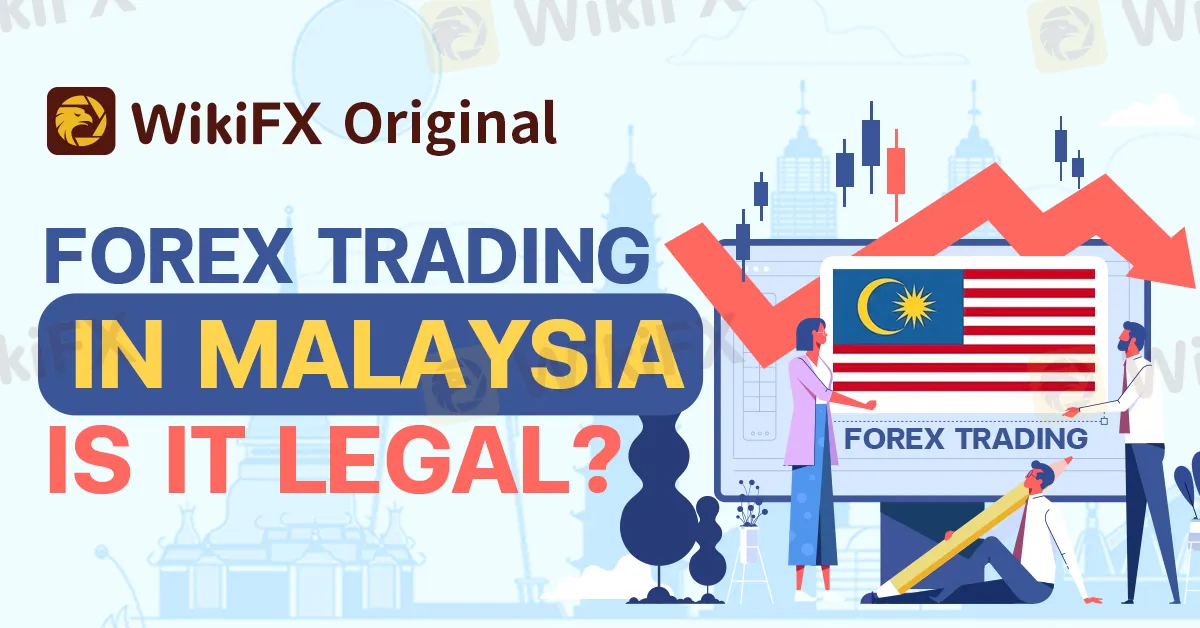简体中文
繁體中文
English
Pусский
日本語
ภาษาไทย
Tiếng Việt
Bahasa Indonesia
Español
हिन्दी
Filippiiniläinen
Français
Deutsch
Português
Türkçe
한국어
العربية
Forex Trading in Malaysia | Is It Legal?
Abstract:Is it legal to trade forex in Malaysia? Yes, to answer briefly. According to Forex Malaysia, Bank Negara Malaysia declared in 2012 that only licenced commercial banks, Islamic banks, investment banks, and international Islamic banks are permitted to conduct forex trading, often known as the buying and selling of foreign currency, in Malaysia. The platforms or brokers one chooses to use must abide by these guidelines.

Forex trading, or the exchange of foreign currencies, is legal in Malaysia. The country has a well-developed financial market, and the Bank Negara Malaysia, the country's central bank, regulates all financial institutions, including those that provide Forex trading services. The Bank Negara Malaysia has imposed certain restrictions on Forex trading to protect investors from fraudulent activities. For example, traders are not allowed to trade on margin, and the maximum leverage brokers can offer is up to 1:30.
However, it is important to note that while Forex trading is legal, it is not necessarily regulated similarly to other financial markets, such as stocks or commodities. This means traders should be cautious and thoroughly research any broker they intend to use. Since 2020, the SCM has begun issuing warnings against Forex brokers operating without a local licence. Until recently, the SCM had turned a blind eye to Malaysian Forex traders utilising offshore brokers to trade Forex and other CFDs. Warnings have been issued against numerous reputable and otherwise well-regulated brokers, including HotForex, FXTM, Tickmill, Oanda, OctaFX, and FBS.
The SCM has stated that these companies violate Malaysia's Capital Markets and Services Act 2007 and that, if found guilty, company officials risk prison time and hefty fines. However, no arrests have yet been made. The SCM is specifically cautioning these brokers from carrying out the unauthorised capital market activities of dealing securities without authority from the SCM.
Despite these restrictions, Forex trading remains a popular activity in Malaysia, with many traders attracted by the potential for high returns. However, as with any investment, it is important for traders to understand the risks involved and only invest what they can afford to lose.
The Exchange Control Act of 1953, the Securities Commission Act of 1993, the Money Changing Act of 1998, and the Capital Markets and Services Act of 2007 are the primary laws and regulations in place to support forex and associated operations. Therefore, the brokers that a Malaysian trader chooses must comply with these rules.
Bank Negara Malaysia, the Malaysian Investment Development Authority (MIDA), Bursa Malaysia, the Securities Commission of Malaysia, the Finance Accreditation Agency (FAA), and the Shariah Advisory Council (SAC) are the primary regulatory organisations and commissions that oversee the foreign exchange industry.
It is also important to note that Malaysia is a Muslim-majority country, and Islamic laws are also applied to financial transactions. That's why some Forex brokers offer swap-free accounts for Muslim traders who comply with Sharia laws.

Check out this post specially curated by WikiFX with some reputable broker recommendations: https://www.wikifx.com/en/best/best-forex-brokers-in-malaysia.html.

Disclaimer:
The views in this article only represent the author's personal views, and do not constitute investment advice on this platform. This platform does not guarantee the accuracy, completeness and timeliness of the information in the article, and will not be liable for any loss caused by the use of or reliance on the information in the article.
Read more

Is ACY Securities a Legitimate Broker? An On-Site Review
Is ACY Securities legitimate? Our on-site review of their Australian office reveals their operations, legitimacy, and overall service. Find out if they're right for you.

Breaking News: Trump Announces 50% Import Tariff on Copper and 200% on Pharma
US President Donald Trump has announced a 50% tariff on copper and copper product imports to the country. He further warned that the import duty on pharmaceuticals can rise up to 200%. Read this to know more details.

Alchemy Markets Review 2025: Key Facts and Insights
Alchemy Markets Review 2025: Uncover key facts, regulatory concerns, trading conditions, and transparency issues to make informed decisions.

How to Tell If the Forex Market Is Good to Trade Today?
Wondering if today is a good day to trade forex? Learn how to evaluate market conditions using volatility, session timing, technical clarity, and economic news—without relying on guesswork.
WikiFX Broker
Latest News
America's Deficit Reckoning: How the U.S. debt spiral could spark a crisis
Treasury yields hold steady as Trump extends tariff deadline
Gold Prices to Fluctuate This Week Amid July 9 Tariff Deadline, Fed Policy
FCA clarifies expectations on bullying, harassment and violence to deepen trust in financial service
XS.com Expands Global Reach with Landmark Kuwait Launch
10 Unlicensed Brokers Exposed – Check Now to Stay Safe!
Exposed: Ibell Markets - A Scam Broker That Does Not Allow Withdrawals
Asia-Pacific markets mostly rise as investors assess Trump's steep tariffs
MT4 vs MT5: A comprehensive comparison in terms of functionality
Top Forex Trading Strategies for the London Session
Currency Calculator


